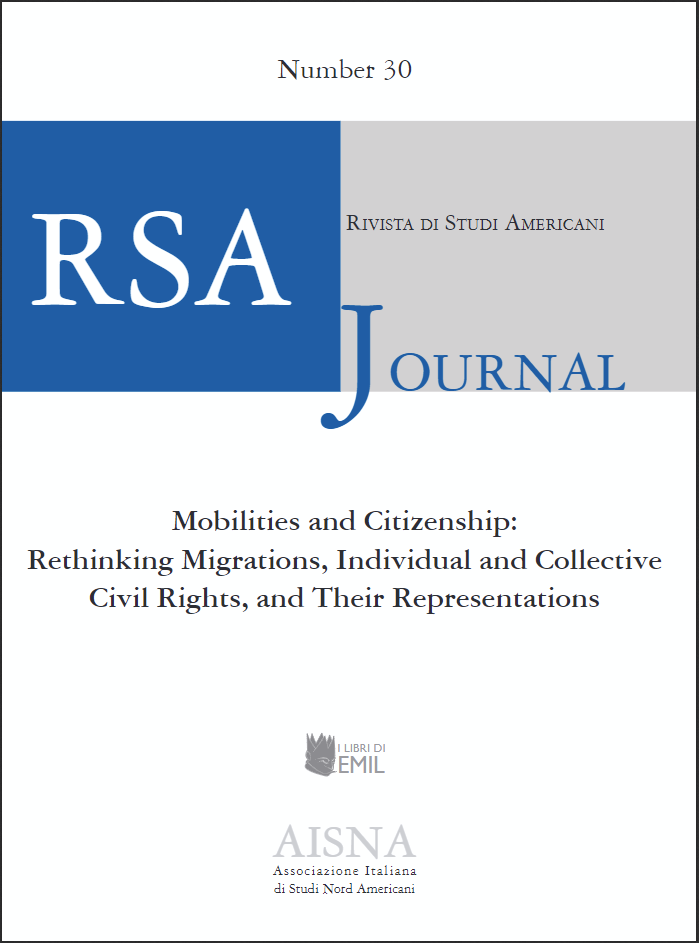The Color of Citizenship
Asian Immigrants to the United States and Naturalization between 1870 and 1952
DOI:
https://doi.org/10.13135/1592-4467/8509Parole chiave:
citizenship, naturalization act, Asian, immigrantsAbstract
The 1870 Naturalization Act granted migrants from Africa and their descendants the right to apply for US citizenship. Consequently, while blacks joined whites among the potential beneficiaries of the naturalization process, Asians remained excluded from it until the 1952 McCarran-Walter Act repealed the “aliens ineligible to citizenship” clause from US legislation. Yet, the contours of who was white and who was Oriental turned out to be somehow blurred when it came to Asians with light complexion and to peoples residing in regions bordering with Europe and Africa. Drawing primarily upon a few landmark cases before the Supreme Court and lower federal courts, this article highlights the efforts of a few Asian applicants who endeavored to exploit loopholes in the naturalization legislation to become US citizens. Moreover, it examines the racial and religious criteria to which federal judges also resorted to define who was Asian and, thereby, not eligible for naturalization and accommodation within US society.
##submission.downloads##
Pubblicato
Fascicolo
Sezione
Licenza
Avviso sul Copyright
RSAJournal applica una licenza CC BY-NC-ND a tutti i suoi contributi. Questa licenza consente agli utenti di copiare e distribuire il materiale in qualsiasi supporto o formato solo in forma non adattata, per scopi non commerciali e a condizione che venga esplicitato/a l'autore/autrice dell'opera. CC BY-NC-ND include i seguenti elementi:
- BY: L'autore deve essere riconosciuto come tale.
- NC: Sono consentiti solo utilizzi non commerciali dell'opera.
- ND: Non sono consentite opere derivate o adattamenti dell'opera.
Gli autori che pubblicano con questa rivista accettano i seguenti termini:
- Gli autori conservano il copyright e tutti i diritti di pubblicazione per i loro contributi alla rivista.
- Gli autori concedono alla rivista il diritto di prima pubblicazione in base alla licenza internazionale Creative Commons Attribution-NonCommercial-NoDerivatives 4.0, che consente ad altri di condividere l'opera non modificata per scopi non commerciali a condizione che venga esplicitato/a l'autore/autrice dell'opera e la sede di pubblicazione iniziale (questa rivista).
- Gli autori sono in grado di stipulare accordi contrattuali separati e aggiuntivi per la distribuzione non esclusiva della versione pubblicata dalla rivista (ad esempio, per inserirla in una repository istituzionale o pubblicarla in un libro), con l'indicazione che il contributo è stato precedentemente pubblicato in RSAJournal.




